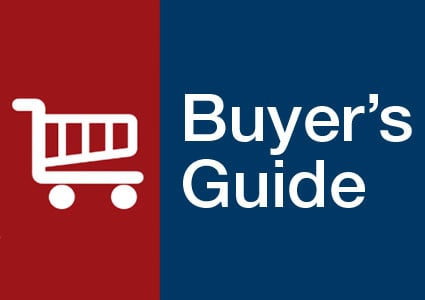- Show Menu
- Contact Us
- FAQs
- Reader Service
- Survey Data
- Survey Winners
- Testimonials
- Upcoming Events
- Webinars
- White Papers
COVER STORY: Is Your Pharmaceutical Supply Chain Safe?
Q&A with Willam H. Woodward, Director of Contract and Program Services at Novation, LLC
Q: What is the scope of the supply chain integrity problem?
A: I’m not sure that anyone knows the exact scope of theproblem. However,thereissignificantevidencethat we have channel integrity problems. The NABP publishes a list of drugs susceptible to counterfeiting. In 2004 the FDA investigated nearly 60 cases of alleged counterfeiting, roughly double the number of cases from the previous year. And recently, a major distributor was convicted for several offenses, including some related to allowing a product that had been bought and sold several times back into the channel. Katherine Eban’s book, Dangerous Doses, describes how counterfeit and degraded products enter our major distribution channels. In addition, the licensing requirements for distributors in many states are not sufficiently rigorous and few states have the budget or manpower to routinely inspect all of their licensed distributors.
Q: In your contracting role at a major GPO, do you see evidence of supply chain problems?
A: I have personally seen several situations that concern me greatly. In one instance, the manufacturers that I deal with here at Novation provide me with a list of their authorized distributors, yet our members routinely forward ads they have received from gray market distributors offering these same products. The product is somehow getting to these unauthorized distributors — be it through diversion, theft, fraud, or some other means — and it is then passed on to customers, often in short market conditions.
In another example, we had a situation where one of our contracted distributors called to say they were offered a product whose pedigree listed two distributors here in Dallas. Since we weren’t aware of any local distributors, we actually went to investigate. It turned out these were fraudulent operations: just addresses with licenses. One location was a rent-by-the-hour office and the other was an abandoned warehouse with a “For Lease” sign out front and a phone, table, and chair inside — nothing else.
Q: The FDA announced in June that they will remove the holds on pedigree regulation effective December 1st. How is FDA regulation going to impact supply chain integrity?
A: The Prescription Drug Marketing Act was amended in 1992 to include requirements related to the wholesale distribution of prescription drugs, but due to lobbying efforts by HDMA and others, full implementation of the regulation has been delayed for nearly 15 years. There were concerns that the new requirements would be too cumbersome and costly while a technological solution might become available soon. However, this regulation requires that a distributor pass on a pedigree only if they are not an authorized distributor of record. To be an authorized distributor of record all that is required is proof of an on going relationship with a manufacturer–such as a written license or distributor or franchise agreement — and ongoing sales. The definition of ongoing sales is two transactions in any 24-month period, which is at best a weak relationship. So an authorized distributor of record doesn’t have to pass on a pedigree to any customer, yet there is no requirement that these same distributors only purchase directly from the manufacturer. Therefore, should an authorized distributor of record purchase product from the gray market and then resell it to you, they are not required to provide a pedigree, according to the federal regulation. This will really limit the effectiveness of the regulation. On the other hand, it will be difficult for many gray market distributors to obtain pedigrees for products previously acquired, hence making it extremely difficult for them to comply with the new regulation. In addition, the FDA has planned enforcement activities to support the implementation. While it’s a great first step in cleaning up the distribution channel, it is not the entire answer.
Q: So the states have stepped in, in some cases, with their own regulations to address these loopholes?
A: Yes, currently there are ten states that have passed regulations concerning wholesalers and pedigrees. Legislation is pending in another 9 states. While the state regulations may not be perfect, they do provide an enforcement mechanism that has been missing from this marketplace.
Q: How reliable is a drug pedigree?
A: Unfortunately, it is very easy to falsify a pedigree. Currently the only way we can trace a product is by the lot number on the vial. But because of the large numbers of units that make up a lot, a given lot could be sold to 50 or even 100 different customers. This makes it nearly impossible to trace a product back to its origins and determine if the pedigree is legitimate.
Without a technology that identifies individual units within the lot, it is difficult to test the integrity of a pedigree. Mass serialization, or marking each unit with a unique identifier, is one solution that has been proposed. RFID is also very promising in this area, but is not ready yet in terms of read accuracy or cost. So while requiring pedigrees may make small improvements to the system, a better solution is for everyone to buy only from authorized distributors of record. A lot of these disreputable companies would then go out of business. All it would take is some discipline.
Q: If federal and state regulations aren’t going to solve these problems, what responsibility does the hospital pharmacist have to ensure a safe supply chain?
A: The hospital has the responsibility to ensure they purchase quality pharmaceuticals and they need to validate that quality. This is a big quandary for healthcare providers today. Even with the best intentions, we don’t currently have a reliable way to validate the quality of the products we buy.
Q: How can hospitals protect their patients from tainted or counterfeit products?
A: First, I think hospitals should consider setting a policy of purchasing pharmaceuticals directly from the manufacturer or through the manufacturers’ authorized channel only. In the past, I have recommended hospitals develop a list of key pharmaceutical products that they would only purchase from authorized distributors of record. However, I now feel it is important to expand that recommendation to all pharmaceuticals. To ensure a safe supply chain we need to apply the same rigor and professional expertise in the procurement process that we use in the rest of the medication delivery systems in our organizations.
Secondly, the hospital should consider developing a list of preferred distributors from whom they purchase all of their pharmaceuticals. The hospital needs to ensure the legitimacy of each preferred distributor and refuse to do business with people who have an unknown or dubious background. Should a hospital choose to buy from a distributor who is not an authorized distributor of record, they should always request a pedigree. While pedigrees have many limitations, they often provide sufficient information for the manufacturer to ascertain whether the pedigree is false. If a distributor is unwilling or unable to provide a pedigree, the hospital should refuse to purchase the product.
Hospitals should always report any suspicious activities, such as suspect pricing or dubious pedigrees, to the manufacturer and to their GPO, if they belong to one. If the hospital is in a state with a pedigree law, such activities should also be reported to the appropriate state enforcement agency as well as the FDA.
Hospitals should be familiar with both the national pedigree laws and those of their particular state and make sure their distributors are living up to them. Up-todate regulatory information is available for most states on their legislative or pharmacy board websites. To get a national view on which states have pending or enacted pedigree legislation, visit the FFF Enterprises website, www.fffenterprises.com/web_pages/drug_pedigree_map.html.
Hospitals should also take steps to prevent diversion. There should be a security officer or team within the organization with oversight responsibilities. When I was a pharmacy director in upstate New York, two employees of a neighboring hospital were diverting anti-emetic drugs and oncology products and selling them out of the trunk of their car to physician offices. More than $1.5 million worth of product was stolen from the hospital over a two-year period. While these people were eventually caught, the risk is that this can occur almost anywhere. Therefore, diversion control is an important part of insuring supply chain integrity. Hospitals need to be especially careful with high-priced and short supply products, as they are the most likely to be diverted. For example, tracking inventory and matching it against orders and charges should be done on a regular basis for the at risk products. Every employee in the pharmacy should be vigilant to keep these products from getting into the gray market.
Q: What policies can a GPO establish to ensure supply chain integrity?
A: The single most important thing a GPO can do is to require that their distributors — as part of the contractual agreement – only source products directly from the manufacturer for their members. And no distributor should balk at that. Secondly, a GPO should encourage their contracted suppliers to require their authorized distributors sign an agreement stipulating that they will only source product directly from the supplier and they will only sell product directly to healthcare providers. For direct customers that are providers and also have distribution licenses, the supplier should require that product be for the “own use” of the provider and not be resold to another provider or distributor. Thirdly, a GPO should watch for member diversion. If a member is buying more products than they legitimately could be using, that needs to be investigated. Typically GPO members are bound by “own use” requirements, meaning products purchased through the contract cannot be resold. Therefore if a member were to resell to another provider or distributor it would be a violation of that agreement. Although this is probably not a major source of product for the gray market, it is a concern. Lastly, it is the GPO’s role to educate their members about market dynamics and the distribution channel.
Q: Should a hospital’s policy on its distribution channel be flexible during a drug shortage?
A: That is a very hard question to answer. On the one hand, you want to ensure your pharmaceuticals are not tainted or counterfeit. On the other hand, you may have a patient that needs a product, and you probably have a physician who is adamant about getting the product now. You can’t always reconcile this situation. I think that hospitals should draw a line in the sand. The policy should be: we are only going to buy through our channel — the legitimate channel – because we know it is safe.
The compromise position is that in times of a shortage, the hospital could also consider other authorized distributors of record for that manufacturer, but no one else. This applies in drug shortage situations and anytime. Because even if you are trying to do the right thing for the patient, if you give them a product that is tainted or that may have been stored improperly, the product is not going to help them. In which case, the physician will assume the patient’s condition is worsening, rather than consider that the product is the problem. This underscores my original point: Because we don’t know the scope of supply chain problems, considering that something may be wrong with the drug almost never comes to mind when evaluating a patient’s response to therapy.
Q: So the market can really drive the change to ensuring drug integrity?
A: Exactly. If everyone only bought directly from manufacturers or through the authorized distribution channel, we would have a much tighter, safer system. Each of us can do our part to ensure safe, effective products for our patients.
William H. Woodward MS, RPh, currently serves as Director of Contract and Program Services, managing the Plasma Program for Novation LLC, where he has worked in several capacities since joining them in 2000. Prior to his tenure with Novation, Bill has over 25 years of experience in hospital pharmacy serving in several roles including over 15 years at the director of pharmacy level. Bill received his BS in pharmacy from the University of Connecticut and his Masters in Management from the Hartford Graduate Center of RPI.
Like what you've read? Please log in or create a free account to enjoy more of what www.pppmag.com has to offer.








